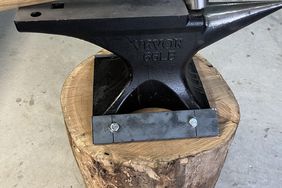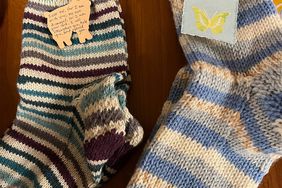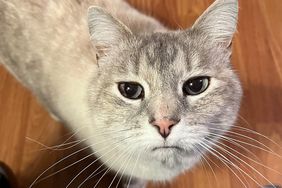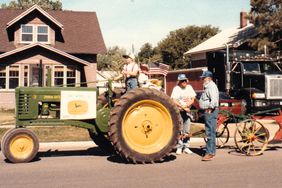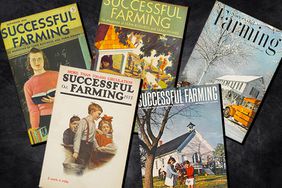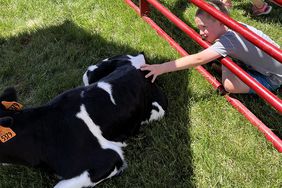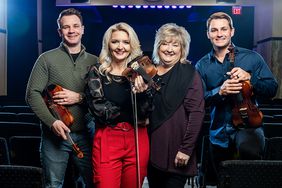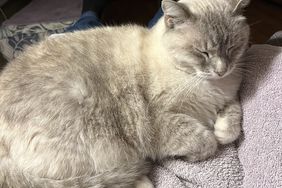:max_bytes(150000):strip_icc()/1954editionofThreeQuarters-f603d83f768a4149b4e7dc39ec14378d.jpg)
Jerry Nelson
A lady named Marla, who lives in Cherokee, Iowa, recently mailed me an antique artifact. I know that it’s antique because it’s a little bit older than me.
The relic in question is a chapbook that was published by Iowa State College in September of 1954. The 70-year-old booklet contains a collection of essays that were penned by students who were enrolled in English 101, 102, and 103. I never attended college, so I have no idea what those numbers mean. For all I know, they refer to the ages of the professors who taught the courses.
The book’s essays are all well written. Some are fiction, and a few describe first-person experiences. Some of the stories have aged better than others.
For instance, the story titled “Long Distance” consists mostly of a telephonic dialog between a wife and her husband. How quaint to think that we once needed an operator’s assistance to communicate over long distances! Nowadays we use things such as Snapchat or Messenger; we’ve essentially replaced human assistants with digital ones.
The reader comprehends within a few paragraphs that the wife has recently left her husband and moved in with her parents in Des Moines. We are privy to their conversation because — get this — the operator is eavesdropping on the entire thing!
Talk about your Big Brother or, in this case, Big Sister. I long suspected that telephone operators did this. It explains why they always seemed to know the latest gossip before anyone else on the planet.
A personal essay that I enjoyed is titled “An October Morn.” The writer deftly describes preparing for a morning of picking corn, performing such tasks as oiling chains, warming up the tractor’s engine, and posting a video on his YouTube channel.
I obviously made up the part about YouTube; I seriously doubt that there was any cell phone reception way out there in the boonies. But the writer paints a vivid picture of picking corn on a chilly October morning: the staccato thumps of ears landing in the empty wagon, the roar of the tractor’s engine, a rooster pheasant running ahead of the picker seemingly unaware that all he has to do is slip into an adjoining corn row.
Having experienced all these things, I can attest to the authenticity of this account. It’s amusing to know that rooster pheasants are still just as dopey as they were seven decades ago.
Another story that hit home is “Hog Wild,” which delineates in hilarious detail the tribulations of showing a pig. Its author, Rollie Henkes, who graduated with a degree in ag journalism, states that hogs have the athletic abilities of a Heisman Trophy winner and that a freshly washed pig has an internal homing device that directs it unerringly to the nearest mudpuddle.
The person who exhibitors the pig is described as a luckless individual who has decided, against all prevailing evidence, that a hog can be guided around the show ring in such a way that its best side will be presented to the swine judge.
Every word of that essay rings true because I have been one of those hapless individuals showing a hog. That is, if showing a pig can be described as “running around behind your hog while he goes wherever he wants.”
I decided to have a pig as my livestock project in my first year of 4-H. This decision was based on the mountains of swine-raising experience that I had piled up during my nine years of life.
Dad gave me a scrawny black piglet that I named Blackie. As a responsible swineherd, I made sure that Blackie’s daily caloric needs were exceeded by supplementing his hog grower ration with such goodies as table scraps, apple peels, and overripe tomatoes.
Blackie grew like a proverbial weed; by the time Achievement Days rolled around, he tipped the scales at nearly 300 pounds. This was approximately four times what I weighed at the time. Getting Blackie to go where I wanted was similar to trying to steer the Titanic.
I gave Blackie a good scrubbing on the morning of the swine show. Thanks to help from some experienced bystanders, I was able to get him to the show ring without incident.
Blackie made a beeline for the show ring’s lone muddy spot and flopped down; an hour of laborious scrubbing was erased in seconds. This is precisely the type of piggish behavior that Henkes describes in his essay.
I could go on about how much I enjoyed that chapbook, but I need to finish this column. I hope that it’s graded on a generous curve.
:max_bytes(150000):strip_icc()/21cid_D1BE0C57-ADCA-4019-89C8-0C68FC5975C8-2000-ff462f30d95d4dafaa1f28ef576889b0.jpg)
Jerry’s book, Dear County Agent Guy, is available at http://Workman.com and in bookstores nationwide.

